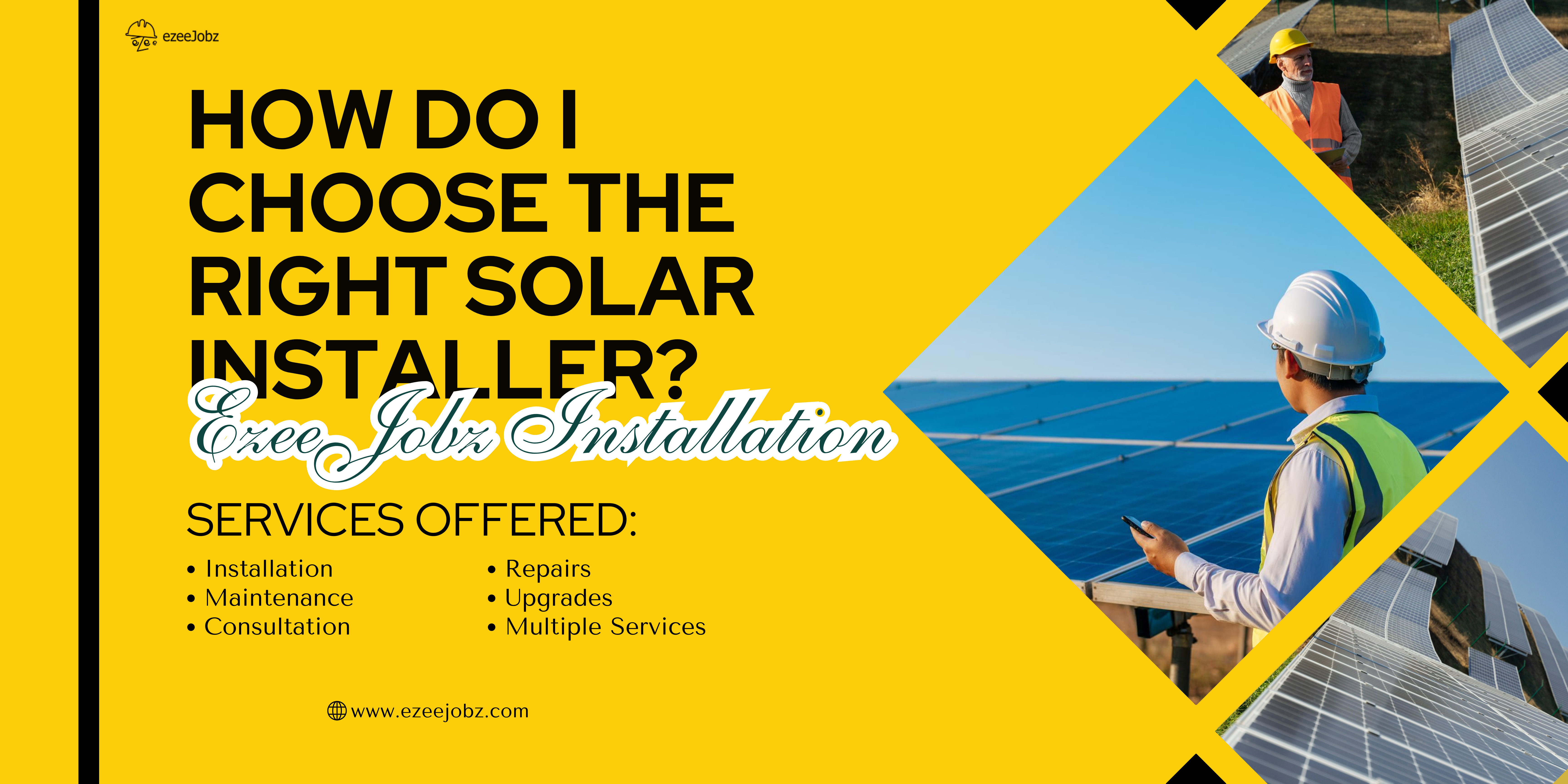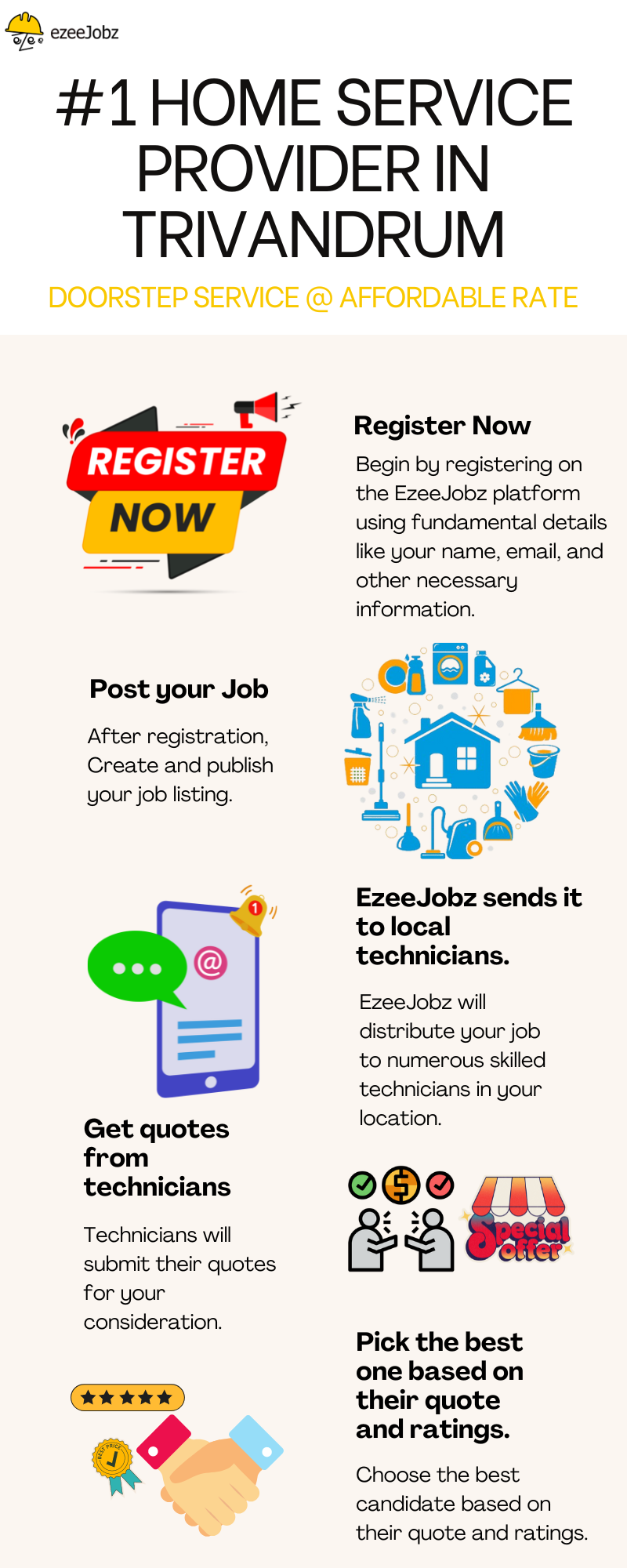Essential Tips for Choosing the Right Solar Installer for Your Home or Business

What Should I Look for When Hiring a Solar Installer?
Switching to solar energy is a significant investment, and choosing the right solar installer is crucial for ensuring the efficiency, longevity, and financial viability of your system. With the increasing popularity of solar energy, the number of solar installers has grown, making it essential to know what to look for when hiring a professional. In this detailed guide, we will explore the key factors to consider when selecting a solar installer, helping you make an informed decision that will benefit you in the long run.
1. Credentials and Certifications
One of the first things to check when hiring a solar installer is their credentials and certifications. A reputable solar installer should be licensed, bonded, and insured. Additionally, certifications from recognized industry organizations indicate professionalism and expertise.
- NABCEP Certification: The North American Board of Certified Energy Practitioners (NABCEP) certification is one of the most respected credentials in the solar industry. It signifies that the installer has undergone rigorous training and has demonstrated expertise in solar installations.
- State and Local Licensing: Licensing requirements vary by state and locality. Ensure your installer meets all regulatory requirements in your area.
- Insurance Coverage: A reputable solar installer should have general liability insurance and workers' compensation insurance to protect you from liability in case of accidents or damages.
2. Experience and Track Record
Experience is an essential factor when hiring a solar installer. Look for companies with a proven track record of successful solar installations. Consider the following:
- Years in Business: Companies with several years of experience are more likely to be reliable and financially stable.
- Number of Installations: Ask how many solar systems they have installed, particularly systems similar to the one you need.
- Portfolio of Previous Work: A reputable installer should provide case studies, customer testimonials, or references from past clients.
- Expertise in Your Type of Installation: Some installers specialize in residential systems, while others focus on commercial or industrial installations. Ensure they have experience with your specific type of project.
3. Quality of Solar Equipment
Not all solar panels and inverters are created equal. The quality of the equipment used in your solar installation affects the efficiency, durability, and warranty of the system. When evaluating an installer, consider the following:
- Brand Reputation: Research the brands of solar panels, inverters, and mounting equipment the installer uses. Reputable brands are more likely to offer durable and efficient products.
- Efficiency Ratings: High-efficiency panels generate more electricity per square foot, making them ideal for homes with limited roof space.
- Warranty Coverage: Look for panels with at least a 25-year performance warranty and inverters with a 10-15 year warranty.
- Battery Storage Options: If you want energy storage, check whether the installer offers high-quality battery options like Tesla Powerwall or LG Chem.
4. Pricing and Financing Options
Solar installations can be costly, but various financing options can make them more affordable. When comparing installers, pay attention to the following:
- Transparent Pricing: Request a detailed quote that includes equipment costs, installation fees, permits, and any additional charges.
- Financing Plans: Some installers offer financing options such as solar loans, leases, or power purchase agreements (PPAs).
- Federal and State Incentives: Ensure your installer helps you take advantage of available tax credits, rebates, and incentives.
- Value Over Price: The cheapest option is not always the best. Consider the quality of the equipment and installation when evaluating costs.
5. Customer Reviews and Reputation
Customer feedback provides valuable insights into an installer's reliability and service quality. Check the following sources:
- References from Past Clients: Ask the installer for references and speak directly to past customers about their experiences.
- Complaint History: Check if the company has complaints filed against them with the BBB or other consumer protection agencies.
- Community Reputation: Local installers with strong community ties are more likely to provide reliable service.
6. Workmanship and Installation Practices
Proper installation is critical for the performance and safety of your solar system. Evaluate an installer's workmanship by considering:
- Installation Crew Experience: Ask if the company uses in-house employees or subcontractors. In-house teams are usually better trained and more accountable.
- Adherence to Building Codes: Ensure the installer complies with local building codes and utility interconnection requirements.
- Roof and Electrical Expertise: The installer should assess your roof’s condition and ensure your electrical system is compatible with solar installation.
- Timeline and Project Management: Ask about the expected timeline for installation and how they handle project management.
7. Monitoring and Maintenance Services
Solar systems require minimal maintenance, but monitoring and occasional servicing ensure optimal performance. When selecting an installer, inquire about:
- System Monitoring: Some installers offer apps or software to track your system’s performance in real-time.
- Maintenance Plans: Check if they provide maintenance services, including panel cleaning and inverter troubleshooting.
- Support and Troubleshooting: Ask about their response time and support services in case of system issues.
- Warranty Services: Ensure they honor manufacturer warranties and provide their own workmanship guarantee.
8. Local Knowledge and Permitting Process
Solar installations must comply with local regulations and utility interconnection rules. A knowledgeable installer should:
- Handle Permits: Assist with obtaining necessary permits and approvals.
- Understand Utility Policies: Ensure compliance with net metering, feed-in tariffs, and grid connection rules.
- Optimize System for Your Climate: Recommend the best panel orientation and tilt for your geographic location.
What Happens If My Solar Panels Get Damaged?
If your solar panels get damaged, their efficiency can decrease, and in severe cases, they may stop working altogether. Damage can be caused by extreme weather conditions like hailstorms, falling debris, or even accidental impacts. Most solar panels are built with durable tempered glass and can withstand harsh weather, but if you notice cracks or a drop in performance, it’s best to have a professional inspect them. Fortunately, many solar panels come with warranties that cover defects or environmental damage, ensuring repairs or replacements when necessary.
Do Solar Panels Work in Cloudy or Rainy Weather?
Yes, solar panels can still generate electricity in cloudy or rainy weather, although their efficiency may be reduced. While direct sunlight produces the most power, solar panels can absorb diffused sunlight that passes through clouds. On overcast days, solar panels may operate at 10-25% of their maximum efficiency, depending on cloud density. Some panels are designed to perform better in low-light conditions, making them effective even in regions with frequent cloudy weather. Rain can also be beneficial as it helps clean dirt and debris off the panels, improving their efficiency.
Choosing the right solar installer is a crucial step in your transition to renewable energy. By considering credentials, experience, equipment quality, pricing, customer reviews, workmanship, monitoring services, and local knowledge, you can ensure a successful solar installation. Take your time to research and compare multiple installers before making a decision. A well-installed solar system will provide clean energy, reduce electricity bills, and increase your property’s value for decades to come.
If you are looking for a trusted and experienced solar installation service, EzeeJobz Solar Installers is a great choice. With a team of certified professionals, high-quality equipment, transparent pricing, and exceptional customer support, they ensure a hassle-free and efficient solar installation experience. Their commitment to excellence and customer satisfaction makes them a reliable partner for your journey toward sustainable energy.


